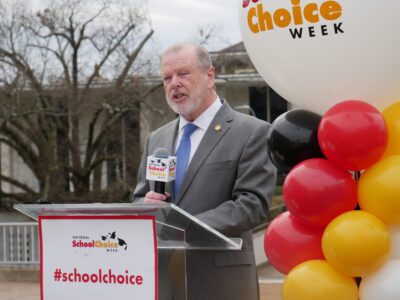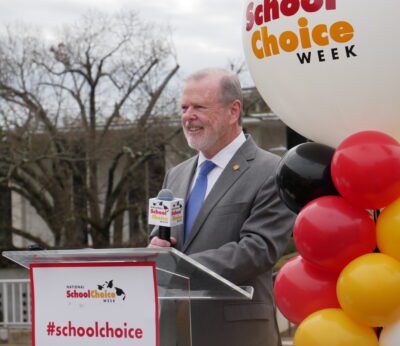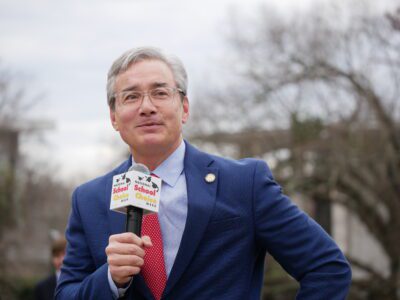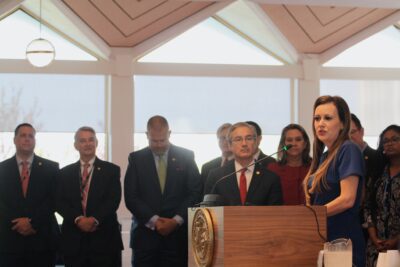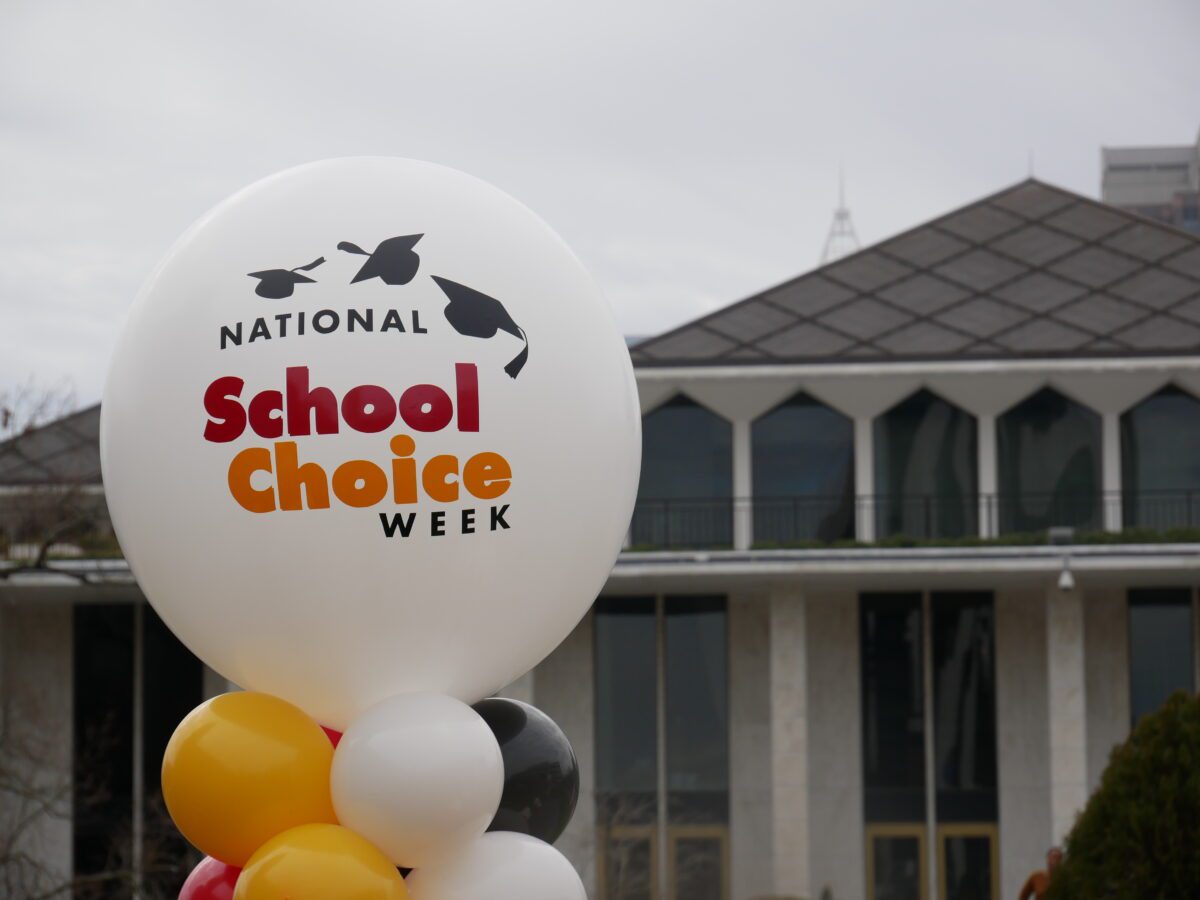
|
|
As House Bill 823 moves through the legislature this short session to clear the waitlists for Opportunity Scholarships and ESA+ Accounts, parents on those waitlists have questions.
“For those of us it effects,” a parent with a son on the ESA+ waitlist emailed, “we are pretty familiar with the program, but not the political and procedural details that might help us and families like us. I would very much like to understand the political process, and become familiar with the players.” The parent also had questions about how to know which legislators are voting for and against the bill.
Previous articles by EdNC on the expansion of school choice
What is NCSEAA?
NCSEAA stands for North Carolina State Educational Assistance Authority, and it is the state agency designated by law to administer K-12 scholarship programs, including Opportunity Scholarships.
Here is their website.
Opportunity Scholarships
According to NCSEAA, “The Opportunity Scholarship program was created by the North Carolina General Assembly in 2013. Scholarships are awarded based on a family’s household income and can be used to pay the required tuition and fees to attend an eligible private school.”
Here is NCSEAA’s landing page for more information on Opportunity Scholarships. Here is where you can find data about the scholarships.
As of Jan. 23, 2024, 32,341 students had Opportunity Scholarships in North Carolina. You can hover on the counties in this map to see how many recipients each county currently has.
Families do not have to disclose their income and families with any amount of income may apply, but the amount of the scholarship received does depend on gross family income and the tuition and fees charged by the private school. Here is a chart with more information:
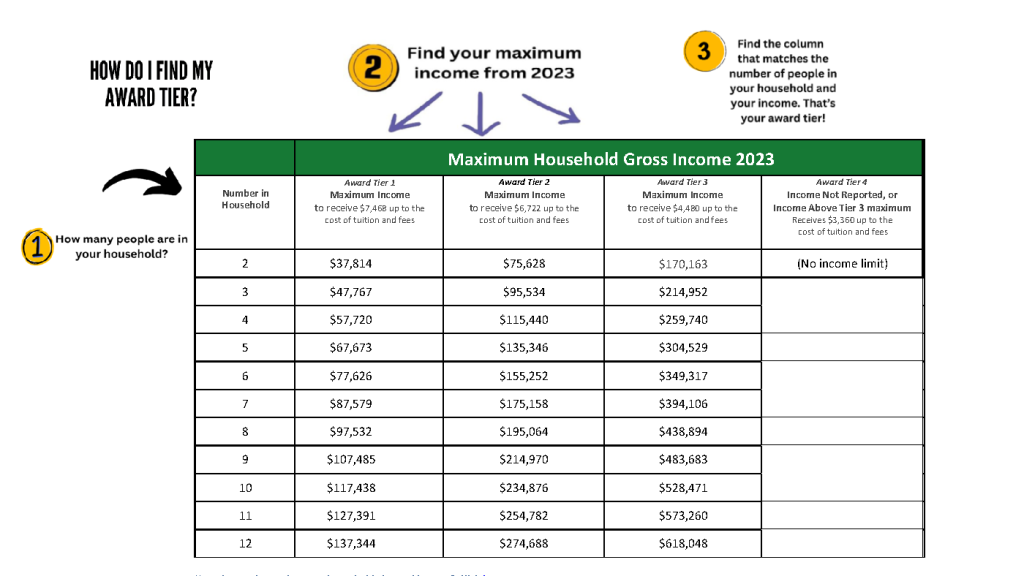
Families may now apply if your child is already in private school.
Local and federal dollars do not follow students to private school.
ESA+
According to NCSEAA, “North Carolina’s Education Student Accounts (ESA+) program is available to meet the needs of students with disabilities. Funds may be used to pay tuition and fees for eligible private schools, and for expenses such as speech therapy, tutoring services, and educational technology.”
Here is NCSEAA’s landing page for more information on ESA+ accounts. Here are the statutes, rules, and data about ESA+.
In 2022-23, according to data on the NCSEAA website, 3,377 students had ESA+ scholarships. Here is the data.
A note on the website of NCSEAA says, “Children who are placed in a nonpublic school by their parents do not have a right to receive all of the special education and related services that they would receive if enrolled in the public schools. Likewise, a private school does not have a legal obligation to provide special education and related services to students with disabilities. Parents are encouraged to select a nonpublic school carefully and to establish a plan prior to enrollment which meets their child’s educational needs.”
The NCSEAA website also says, “Parents of children with disabilities may have another option to help save and pay for education expenses at K12 schools through the use of an NC ABLE Account. The NC ABLE Program allows eligible individuals the opportunity to save and fund a variety of qualified disability expenses, including certain education expenses. The NC ABLE Program is overseen by the Department of the State Treasurer and additional information can be found here.”
Both the scholarships and the accounts are also sometimes referred to as vouchers.
The expansion of school choice
Opportunity Scholarships
Following the expansion of the Opportunity Scholarship program in 2023, about 72,000 applications for scholarships were received by the deadline on March 1, 2024.
The N.C. State Education Assistance Authority (NCSEAA) initially notified the families of 13,511 students that they have been offered an Opportunity Scholarship for the 2024-25 school year, according to a press release. These students are “new” students, which means they do not currently receive an Opportunity Scholarship.
All of the families notified of offers were in Tier 1, which consists of households with the lowest income levels and whose student will receive up to the maximum scholarship amount of $7,468 based on the tuition and fees charged by the private school they will attend.
On April 26, NCSEAA extended award offers to the families of 2,294 new students in Tier 2 for the 2024-25 school year. Those families have up to $115,440 in gross income for a family of four, and they could receive up to $6,722 based on the tuition and fees charged by the private school they will attend.
Currently, it is estimated that more than 54,800 applicants are on the waitlist, according to a press release from Senate President Pro Tempore Phil Berger, R-Rockingham.
To clear the waitlist for families of all income levels, the bill introduced this week funds $248 million nonrecurring for the upcoming school year and $215.5 million recurring to support scholarships in the 2025-26 school year.
ESA+
NCSEAA recently sent award offers to the families of 958 new students. There are an estimated 2,015 applicants currently on the waitlist.
The bill also includes $24.7 million recurring to clear the waitlist for ESA+ Accounts.
Information about the bill to clear the waitlist
This year’s short session began on April 24. During this session, lawmakers can adjust the two-year budget passed in the long session and are able to discuss bills that previously passed one house (known as making crossover) or recommendations from a study commission.
In the Senate, a proposed committee substitute (PCS) for House Bill 823 was adopted by the Appropriations Committee on May 1 and passed the Senate by a 28-15 vote on May 2.
Here is where you can track the bill as it moves through the legislative process. On this page you can see the latest two votes, or you can click and show all votes. Under result, pass or fail is hyperlinked. If you click on it, you can see who voted for and against the bill by party.
Here is the PCS text.
Sen. Michael Lee, R-New Hanover, noted in his presentation to the Senate Appropriations Committee that Opportunity Scholarships are forward funded and ESA+ is not. That’s why, he said, in the PCS there is money to both clear the waitlist and forward fund Opportunity Scholarships but money to just clear the ESA+ waitlist.
Here is how a bill becomes law. Each legislative session runs for two years: in year one, there is a long session, and in year two, there is a short session. Generally, given that this bill is being taken up in a short session, this bill would go back to the House for concurrence, and then to the governor, who could veto it. Republicans have a three-fifths majority in both houses, so they have the votes to override a veto.
Appropriations to clear the waitlist could also end up getting addressed in the short session budget.
Assuming the bill passes the legislature, NCSEAA would then be in touch with parents on the waitlist about the process moving forward.
Who are the champions for school choice expansion?
The leader of the Senate is Phil Berger, R-Rockingham. The leader of the House is Tim Moore, R-Cleveland. Both have indicated support for clearing the waitlists.
Here is who serves on committees in the House on Appropriations, Education Appropriations, and K-12 Education.
Here is who serves on committees in the Senate on Appropriations/Base Budget, Appropriations/Education and Higher Education, and Education/Higher Education.
Parents for Educational Freedom in North Carolina “is a nonprofit organization that advocates for quality educational options through parental school choice.”
Gov. Roy Cooper has declared 2024 “The Year of Public Schools,” and he has visited 46 child care centers, schools, community colleges, and businesses across North Carolina, calling for a moratorium on voucher expansion. He and Democrats in the legislature believe public schools need to be funded adequately before additional funds are invested in vouchers.
In 2023, 29% of traditional public schools and 27% of charter schools were low-performing.
Here is more information about state government and how to be an effective advocate.
Let me know if you have other questions at mrash at ednc.org.



